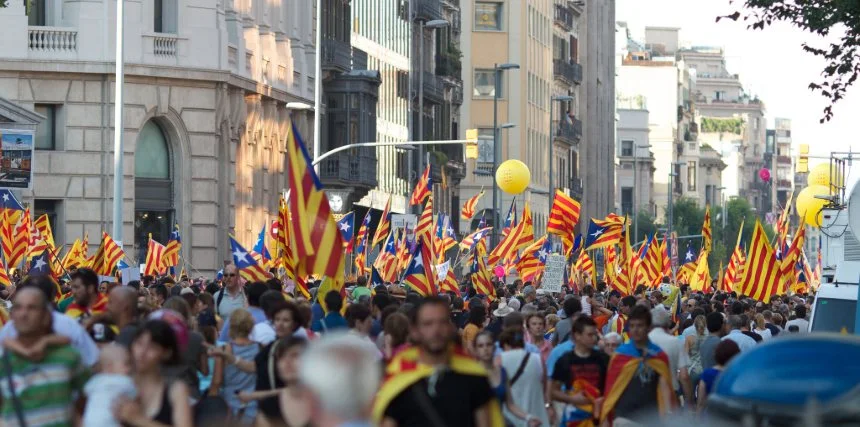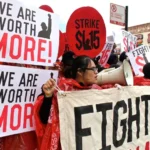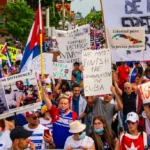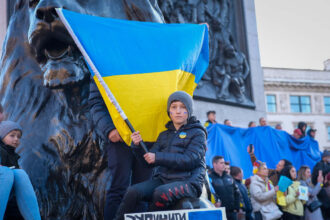Introduction
In democratic states, responding to secessionist movements that challenge constitutional foundations presents complex challenges. The intersection of political rights and the rule of law during such crises raises critical questions. This article examines how the United Nations Human Rights Committee (HRC) addressed two complaints from Catalan leaders following the 2017 Catalan Declaration of Independence. This declaration, which sought to establish Catalonia as an independent republic, led to significant legal and political conflicts with the Spanish government.
The HRC’s role in assessing these complaints highlights the difficulties of protecting political rights while ensuring adherence to constitutional law. The article explores the procedural hurdles faced by the HRC, including issues of admissibility and the exhaustion of domestic remedies. It also analyzes how the HRC evaluated the merits of the cases, particularly the extent to which the passage of time influenced its views on the political rights involved.
The complaints submitted to the UNHRC were driven by the leaders’ belief that the Spanish authorities had overstepped their legal boundaries.
Furthermore, the article reflects on the potential costs of procedural flexibility, especially when the urgency of the complaints did not meet the threshold for irreparable harm. By examining these cases, the article aims to provide insights into the broader implications for democratic states dealing with secessionist movements, emphasizing the need to balance political rights with the rule of law during periods of constitutional crisis.
The Challenge of Secessionism: The Catalan Process
Secessionist movements, such as those in Catalonia, Quebec, and Scotland, challenge the constitutional frameworks of democratic states. In Catalonia, the regional government’s efforts to achieve independence culminated in a unilateral declaration of independence in October 2017. This declaration was a significant breach of Spanish constitutional law, prompting immediate and decisive actions from the Spanish central government.
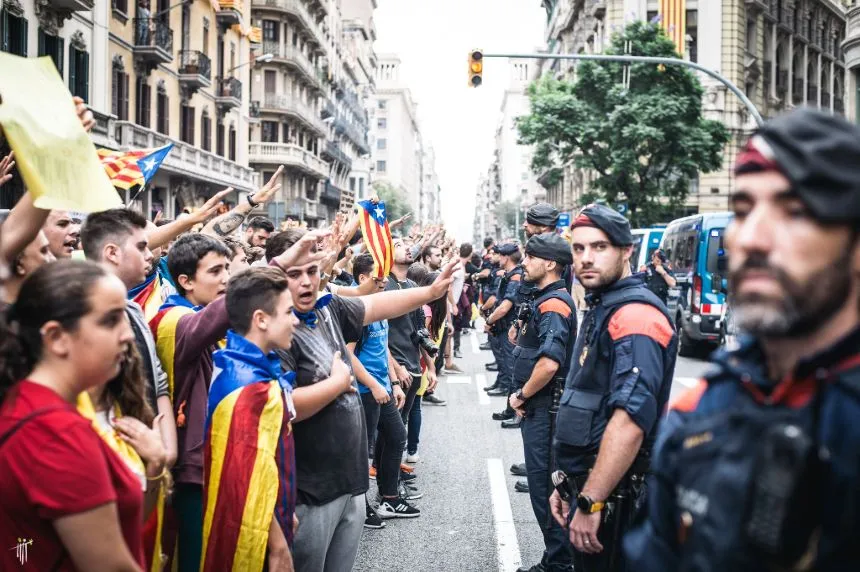
The Spanish government responded by invoking Article 155 of the Spanish Constitution, which allowed it to dissolve the Catalan Parliament and call for new regional elections. This unprecedented move was aimed at restoring constitutional order and addressing the legal violations committed by the Catalan leaders. The central government also initiated criminal proceedings against several Catalan leaders, charging them with serious offenses such as rebellion and sedition.
The Catalan independence movement had utilized regional legislative powers to authorize a binding referendum on independence and to outline the transition to an independent republic. Despite the Spanish Constitutional Court’s suspension and annulment of these laws, the Catalan government proceeded with the referendum on October 1, 2017, and later declared independence on October 27, 2017. These actions, viewed as direct challenges to Spain’s constitutional integrity, led to a political and legal crisis that tested the limits of democratic governance and the rule of law.
This situation highlights the complex dynamics between secessionist aspirations and the necessity for states to uphold constitutional order. The Catalan case illustrates the tensions and conflicts that arise when regional governments pursue paths toward independence that contravene national legal frameworks.
Background of the HRC Complaints
In the December 2017 Catalan elections, the leaders of the independence movement were re-elected, reflecting ongoing support for their cause. However, these leaders faced significant legal and political challenges due to the charges against them. The Spanish government had initiated criminal proceedings, accusing them of rebellion and sedition, which imposed severe restrictions on their political rights. These charges and subsequent legal actions had profound implications for their ability to participate in the political process.
A key aspect of the HRC’s engagement was assessing the merits of the complaints.
Carles Puigdemont and other Catalan leaders argued that these measures violated their rights under Article 25 of the International Covenant on Civil and Political Rights (ICCPR). Article 25 guarantees the right to participate in public affairs, to vote and be elected, and to have access to public service.
The leaders claimed that the suspension from public office was arbitrary, lacking the necessary foreseeability and objectivity required by international standards. They contended that the charges of rebellion, which necessitate a violent and public uprising, were not applicable to their actions, as the events leading to the declaration of independence did not involve the level of violence required to justify such serious charges.
The complaints submitted to the UNHRC were driven by the leaders’ belief that the Spanish authorities had overstepped their legal boundaries, infringing on their political rights without adequate justification. They sought the HRC’s intervention to address what they perceived as a misuse of legal provisions aimed at suppressing their political activities. This background sets the stage for the HRC’s examination of the merits of these complaints, highlighting the tension between upholding constitutional law and protecting political rights in a democratic context.
Procedural Hurdles
In response to the complaints from the Catalan leaders, Spain raised several procedural objections aimed at preventing the HRC from considering the cases. These objections included arguments of lis pendens, which suggests that the same matter was already being examined in another forum, and non-exhaustion of domestic remedies, which requires that all available legal avenues within the country must be pursued before bringing a case to an international body.

Spain argued that the complaints should be dismissed on these grounds. They claimed that the petitioners had not fully utilized the domestic legal system, as required under the International Covenant on Civil and Political Rights (ICCPR), before turning to the HRC. Additionally, Spain contended that the issues raised were already being addressed in other legal venues, thus invoking the principle of lis pendens.
Despite these objections, the HRC maintained a protective stance towards the petitioners. The Committee declared the cases admissible, emphasizing the importance of addressing the alleged violations of political rights. In justifying its decision, the HRC highlighted concerns of procedural economy, pointing out that dismissing the cases would likely result in the petitioners resubmitting their complaints after exhausting domestic remedies. This would only delay the process and prolong the resolution of the issues at hand.
The HRC’s decision to proceed with the cases despite the procedural objections underscores its commitment to ensuring access to justice for individuals claiming violations of their political rights during a constitutional crisis. By focusing on the substantive issues rather than seeing itself as being strictly bound by procedural technicalities, the Committee aimed to provide a remedy for the petitioners, thereby reinforcing the protection of political rights within the framework of international human rights law.
Analysis of the HRC’s Engagement
The Human Rights Committee (HRC) faced a multifaceted challenge in addressing the complaints from Catalan leaders. Striking a balance between safeguarding political rights and maintaining procedural integrity was paramount. The HRC needed to navigate its role carefully to avoid encroaching on the jurisdiction of national courts while still thoroughly examining the complaints.
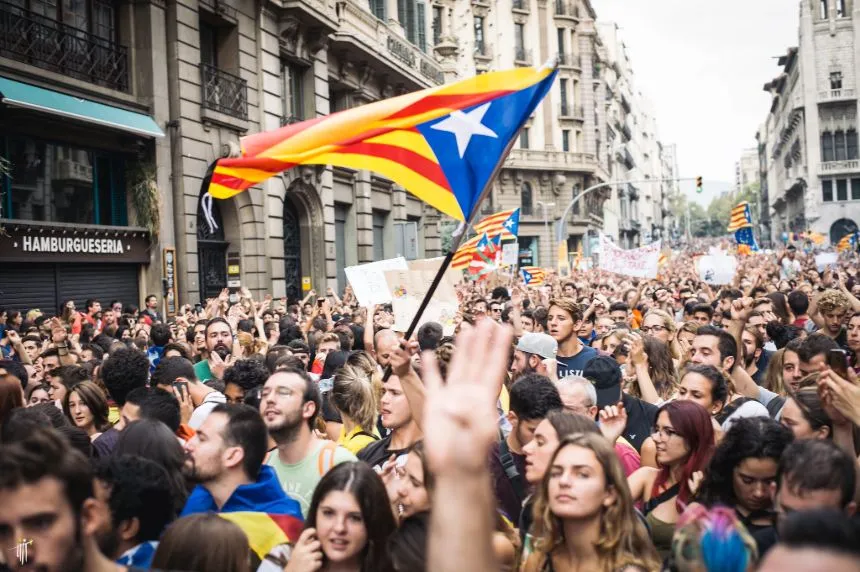
A key aspect of the HRC’s engagement was assessing the merits of the complaints. The Committee needed to determine if the charges of rebellion against the Catalan leaders were justified under the specific circumstances of the Catalan demonstrations. Spanish law defines rebellion as a violent and public uprising, but the Catalan leaders argued that their actions were peaceful and did not meet this definition.
The HRC concluded that Spain had violated the political rights of the Catalan leaders by suspending them from office during the criminal proceedings.
In its analysis, the HRC scrutinized the nature of the events in Catalonia, including the demonstrations on September 20 and 21, 2017. The Committee evaluated whether these events constituted a violent uprising or were, as the petitioners contended, largely peaceful. This assessment was crucial for deciding if the suspension of the leaders from public office and the subsequent charges were appropriate and proportionate.
The HRC’s approach underscored its commitment to protecting political rights while adhering to the procedural requirements of international human rights law. The Committee aimed to base its decisions on a thorough and objective analysis of the facts, ensuring that it did not interfere with national judicial processes. By focusing on specific legal standards and the context of the events, the HRC sought to deliver a balanced and fair resolution to the complaints, reinforcing justice and human rights principles.
The careful handling of these cases by the HRC highlights the vital role of international human rights mechanisms in addressing complex legal and political issues. It also demonstrates the challenges these bodies face in balancing national sovereignty with international human rights obligations. Through its measured approach, the HRC aimed to maintain procedural integrity while protecting political rights in a highly contentious and politically sensitive situation. The separate opinions attached to the Committee’s views in the cases indicated some differences among its members if it succeeded in doing so.
Upholding Political Rights in Hindsight
The HRC concluded that Spain had violated the political rights of the Catalan leaders by suspending them from office during the criminal proceedings. This conclusion was based on the assessment that the automatic and collective suspension lacked individual analysis and proportionality, which are essential under Article 25 of the ICCPR. However, the decision was narrowly focused on the suspension period and did not address broader allegations initially raised by Puigdemont, such as claims related to freedom of expression and the right to an impartial tribunal.
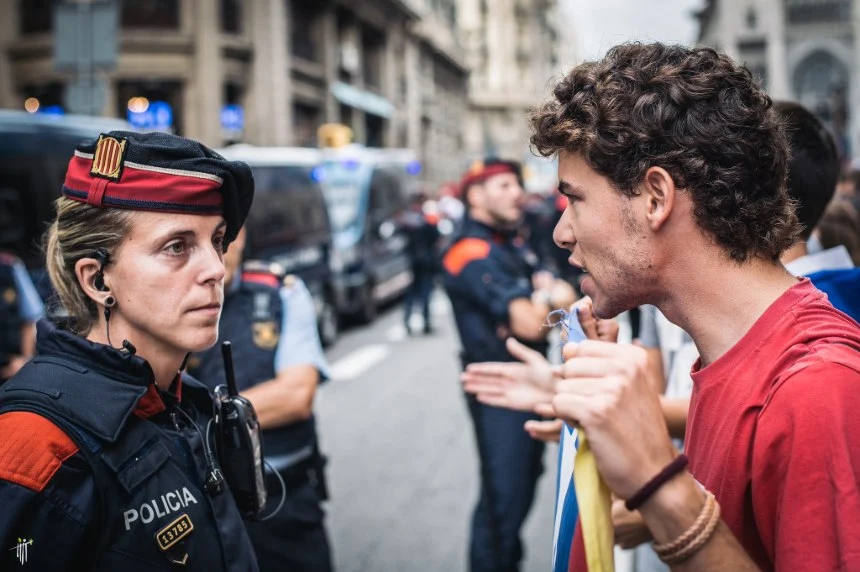
The passage of time between the events in Catalonia and the HRC’s assessment played a significant role in shaping the outcome. The HRC’s views were influenced by developments in the intervening period, including the legal proceedings in Spain and the broader political context. This delay resulted in a more modest outcome compared to other international opinions on the matter, such as those from the Working Group on Arbitrary Detention, which had taken a stronger stance in favor of the petitioners.
The HRC balanced procedural integrity with ensuring justice for individuals whose political rights were at stake.
Despite the limited scope of the decision, the HRC emphasized the importance of upholding political rights even during times of crisis. The Committee called for Spain to provide effective remedies to the affected leaders and to take measures to prevent similar violations in the future. However, the HRC deemed that the publication and dissemination of its views constituted sufficient reparation, leaving the implementation of more concrete measures to the discretion of the Spanish authorities.
The HRC’s decision underscores the challenges of addressing political rights in the context of a rule of law crisis. While the Committee aimed to protect the rights of the petitioners, the passage of time and the complexities of the case led to a cautious approach. This reflects the broader difficulty of balancing the need for timely and decisive action with the principles of legal fairness and procedural integrity in international human rights adjudication.
Conclusion
The HRC engagement with the complaints from Catalan leaders highlights the complexities of addressing political rights during a rule of law crisis. The Committee’s protective stance towards the petitioners was evident, yet the procedural flexibility and the influence of hindsight significantly shaped the final views. These cases underscore the inherent challenges democratic states face in balancing constitutional integrity with the protection of political rights amidst significant political upheaval.
The HRC’s approach illustrated the delicate act of maintaining procedural integrity while ensuring justice for individuals whose political rights were at stake. By navigating between upholding international human rights standards and respecting national legal frameworks, the HRC aimed to provide a fair assessment of the complaints. This balance is crucial in reinforcing the legitimacy of international human rights mechanisms and their role in protecting individual rights against potential state overreach.
The influence of time on the HRC’s decision-making process further complicated the engagement. The delay between the initial events and the final assessment led to a more cautious and modest outcome. This highlights the difficulty in addressing rapidly evolving political situations with the procedural thoroughness required by international bodies. The decision to limit the scope of the findings to the suspension period, rather than addressing broader allegations, reflects this cautious approach.
Overall, the HRC’s handling of these cases offers valuable insights into the interplay between political rights and the rule of law in democratic states. It emphasizes the need for timely and effective international responses to protect political rights while respecting procedural fairness and national sovereignty. The Catalan cases serve as a reminder of the ongoing struggle to balance these principles during periods of political crisis, underscoring the vital role of international human rights bodies in safeguarding democratic values.
Adapted from an academic article for a wider audience, under license CC BY 4.0


